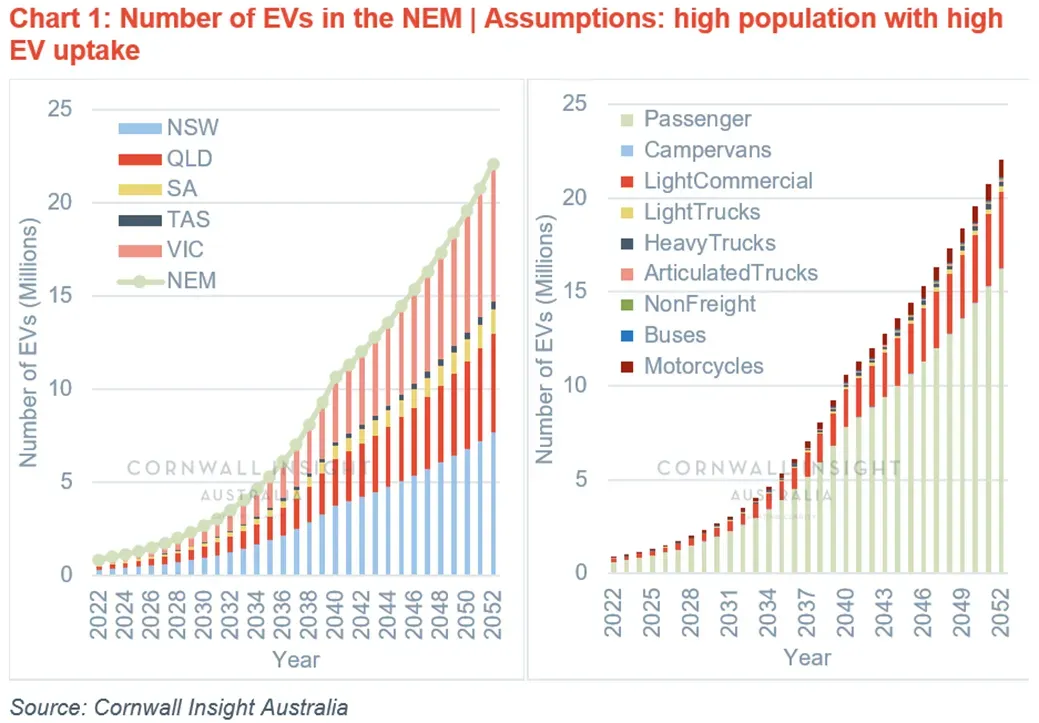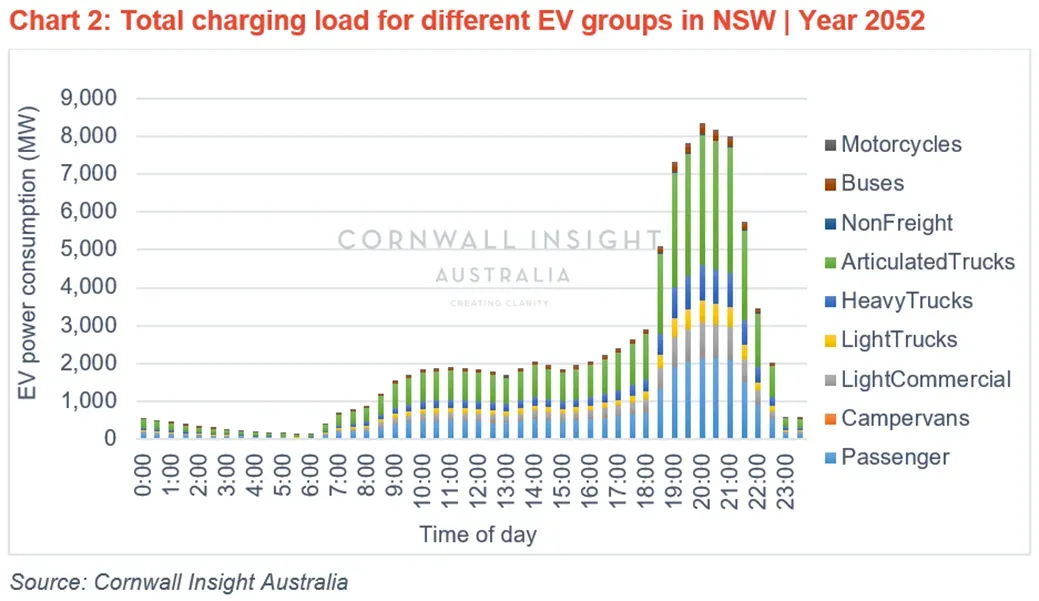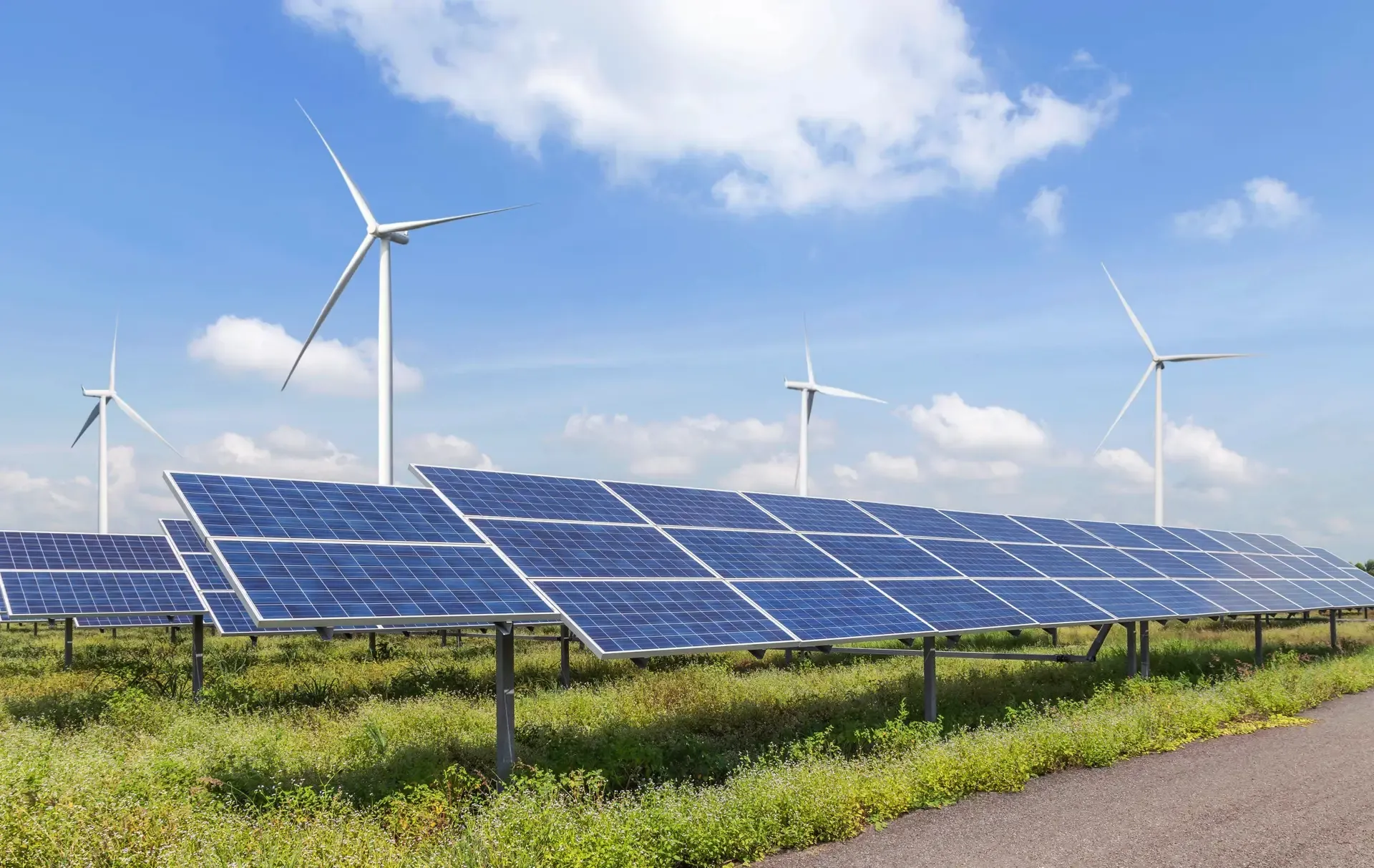"The golden era of internal combustion engine cars is coming to an end, and we must start planning for the increased load on the grid from electric vehicles."
Mojtaba Jabbari Ghadi Energy Consultant
New data from Cornwall Insight Australia’s EV uptake model shows that under an extreme scenario, 22 million electric vehicles (EVs) are expected to be part of the National Electricity Market (NEM) states’ fleet by 2052. The scenario is based on a high population and an EV penetration rate of 98% of total cars in Australia1. Figure 1 displays the projected number of EVs by state and user type under these conditions.
The growing popularity of EVs presents a challenge for the electricity market as many EV owners prefer to charge their vehicles during evening peak hours, causing a surge in demand. To prevent overwhelming the grid, it is crucial that EV owners be encouraged to charge during hours of high renewable generation, such as mid-day or early morning.
A considerable share of the charging load for EVs by 2052 is expected to come from trucks, which drive an average of 79 thousand kilometres2 per year. Offering financial incentives for off-peak charging to fleets could alleviate the stress on the network, reduce the need for power grid upgrades and save truck drivers a significant amount of money.
Figure 2 uses New South Wales (NSW) as an example of what could happen if the scale of EV charging is not properly managed. Our data shows there will be an 8GW total demand for EV peak charging by 2052. This is compared to the current 10GW evening peak in NSW.


Mojtaba Jabbari Ghadi, Energy consultant at Cornwall Insight Australia, said:
The golden era of internal combustion engine cars is coming to an end, and we must start planning for the increased load on the grid from electric vehicles. To ensure the energy grid is not overwhelmed, it will be essential to encourage charging during non-peak hours.
With truck drivers accounting for 60% of demand by 2052, focusing on this smaller but high-impact group instead of a vast number of passenger car users is a potential solution to lower grid stress.
Properly implemented financial incentives can offer a win-win for both the electricity grid and consumers by easing pressure on the system and potentially saving drivers thousands of dollars.”
Reference:
1. Based on figures from the Australian Bureau of Statistics
2. Based on figures from the Australian Bureau of Statistics
–Ends
Notes to Editors
For more information, please contact: Verity Sinclair at v.sinclair@cornwall-insight.com
To link to our website, please use: https://www.cornwall-insight.com/au/
About the Cornwall Insight Group
Cornwall Insight is the pre-eminent provider of research, analysis, consulting and training to businesses and stakeholders engaged in the Australian, Great British, and Irish energy markets. To support our customers, we leverage a powerful combination of analytical capability, a detailed appreciation of regulation codes and policy frameworks, and a practical understanding of how markets function.

